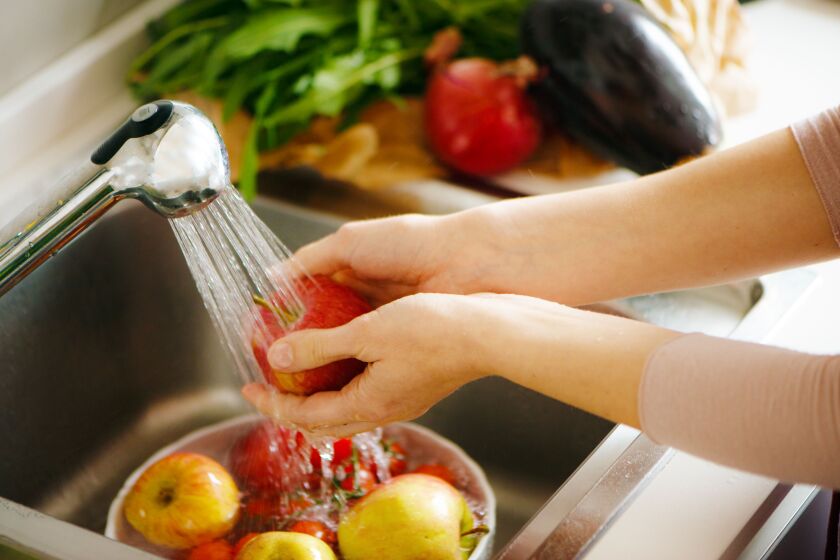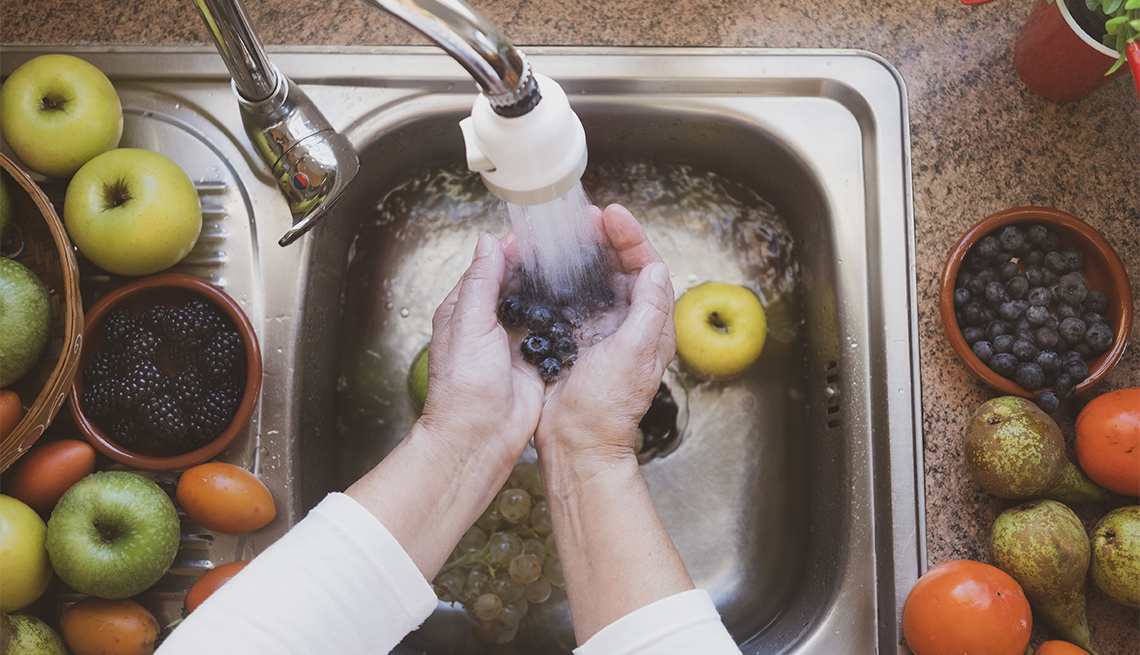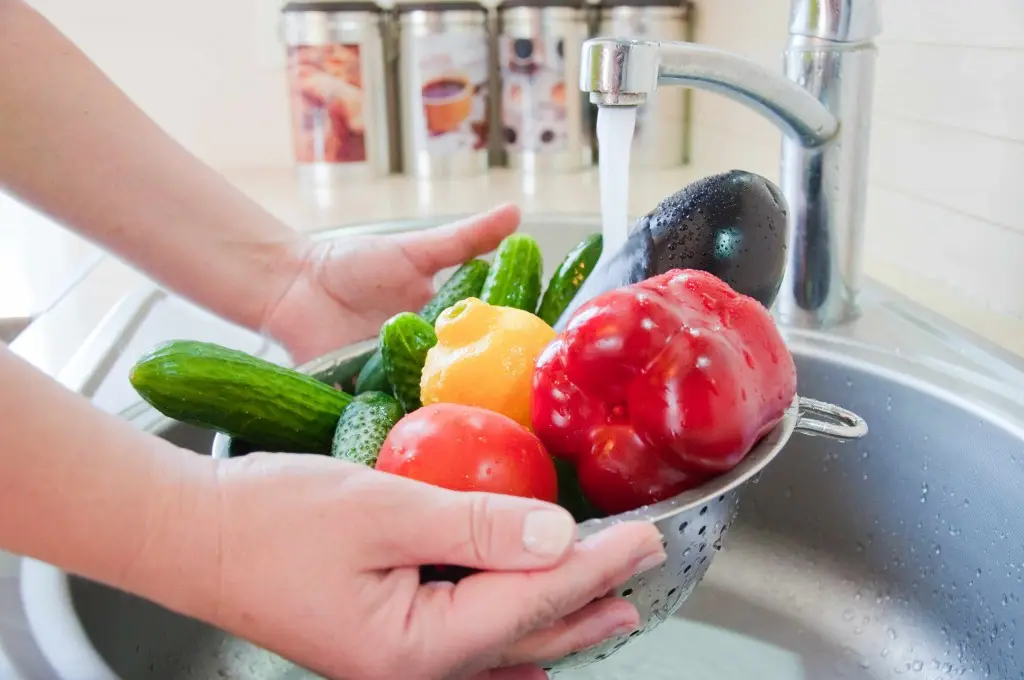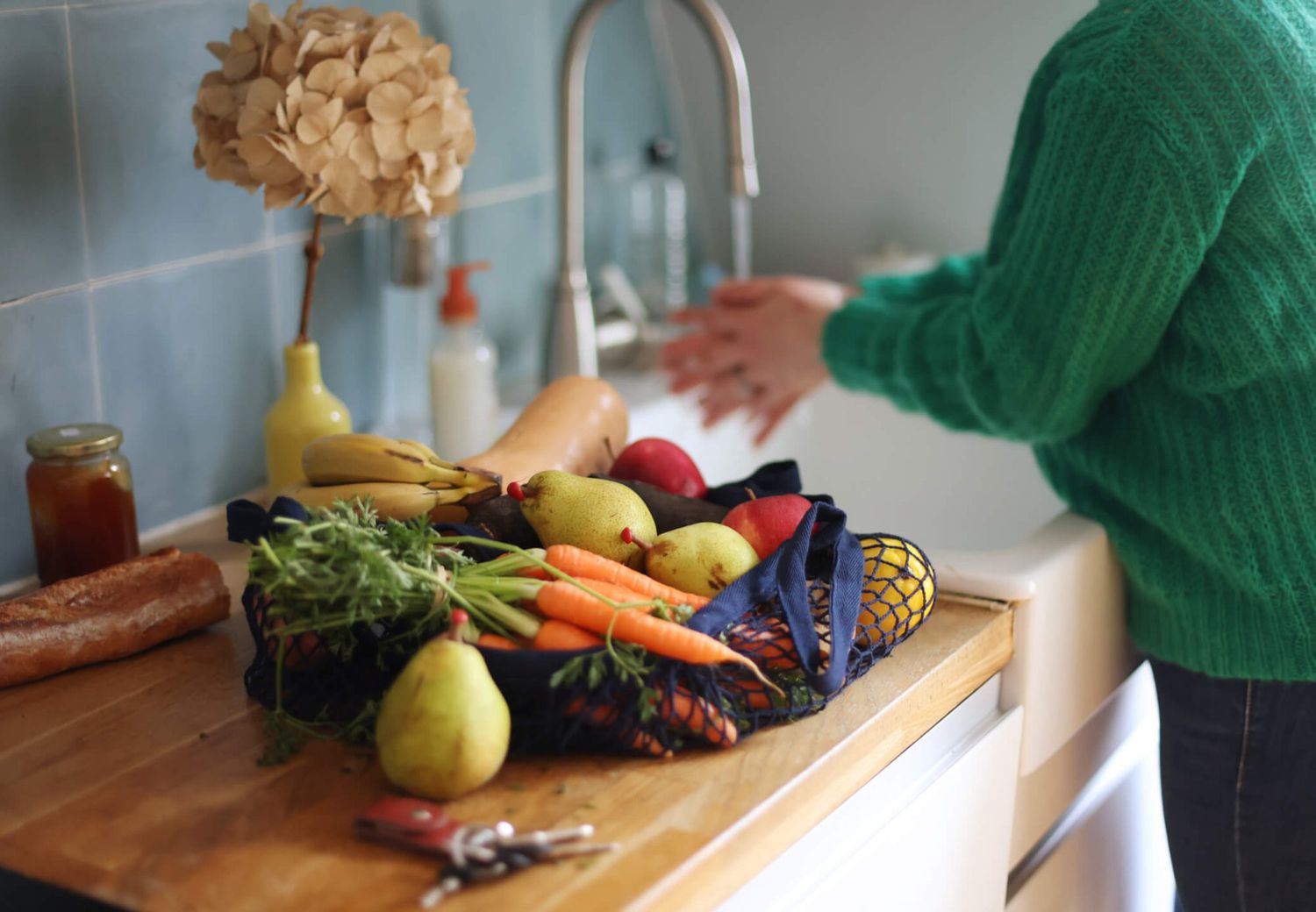Fresh produce plays a vital role in our diets, providing essential nutrients and contributing to a healthy lifestyle. However, with increasing concerns about pesticide residues, bacteria, and other contaminants on fruits and vegetables, proper cleaning practices are necessary. Zote Soap, known for its versatility and cleaning power, raises the question of whether it can be used effectively and safely for cleansing fresh produce. This essay will delve into the topic, discussing the potential benefits and drawbacks of using Zote Soap for this purpose.
Why Should You Wash Your Produce?

The reason we wash fresh fruits and vegetables is to wash away soil, microorganisms, and pesticides. Sometimes you’ll see visible dirt on leafy greens and other vegetables, which can be unappetizing and give your meal a grainy texture. However, microbial pathogens such as E. coli, salmonella, and the microorganisms that cause norovirus are not found in produce but can cause food poisoning.
Studies have also linked pesticide residues to negative health effects. For example, pesticides are associated with adverse reproductive outcomes in women, including:
- Menstrual cycle abnormalities
- Changes in sex hormone production
- Increased risk of miscarriage
- Increased chance of having a baby with a birth defect
- Consumption of agricultural products with high levels of pesticide residues can also negatively impact male fertility.
Is Zote Soap Suitable for Cleaning Produce?

- Understanding Zote Soap and its Composition
To evaluate the suitability of Zote Soap for cleaning fresh produce, it is crucial to understand its composition. Zote Soap is a laundry soap made primarily from beef tallow, coconut oil, and citronella oil. These ingredients are combined to create a dense soap bar with effective cleaning properties. However, this composition raises concerns about its potential impact on fresh produce.
- The Effectiveness of Zote Soap in Removing Contaminants
The primary goal of washing fresh produce is to remove dirt, bacteria, pesticides, and other contaminants. While Zote Soap is known for its stain removal power and effectiveness in cleaning various surfaces, it may not be the ideal choice for cleansing produce. The ingredients in Zote Soap, particularly the citronella oil, may leave a residue on fruits and vegetables, which could affect their taste, texture, and overall quality.
- Potential Risks and Drawbacks
Using Zote Soap for cleaning fresh produce comes with potential risks and drawbacks. Firstly, the presence of citronella oil raises concerns about its effects on human health. While citronella oil is generally recognized as safe for topical use, its ingestion or prolonged exposure could result in adverse reactions. Additionally, Zote Soap is not specifically formulated or approved for use on food contact surfaces, making it difficult to ascertain its safety for produce cleansing.
- Alternatives to Zote Soap for Fresh Produce Cleaning
Fortunately, there are alternative methods and products available specifically designed for cleaning fresh produce. One such method is using a mixture of water and white vinegar. This solution is effective in removing many types of contaminants and is considered food-safe. Another option is using produce washes available in the market, which are formulated to remove pesticides and bacteria without leaving a residue or impacting the produce’s quality.
Recommendations for Safe Fresh Produce Cleaning

Based on the considerations discussed, it is advisable to avoid using Zote Soap for cleansing fresh produce. Instead, adhere to these recommendations for safe and effective fresh produce cleaning:
- Rub with cold water
If you’re eating delicious fruits and vegetables and you suspect they’ve got some stains on them, one of the easiest ways to quickly clean them is to soak them under cold running water for at least 20 seconds and then gently rub them with clean water. It is to do. soft brush. Then, pat dry with a towel before eating the food or using it as a meal ingredient.
- Soak in salt water
One of the best ways to wash fruits and vegetables to avoid insects and pesticides is to soak them in salt water. We recommend soaking produce in Himalayan or sea salt for at least 20 minutes, then rinsing under running water. Then it is cleaned and ready to eat.
- Try Sodium Bicarbonate
Sodium bicarbonate, also known as baking soda, is a great solution for cleaning fruits and vegetables. Simply add 1 teaspoon of sodium bicarbonate to 500ml of water, let it soak for 15 minutes, then rinse.
- Soak in white vinegar
If you are using white vinegar, you will need a solution of 1 part vinegar to 4 parts water. Once soaked, add your favorite fruits and vegetables and let soak for 15-20 minutes, then rinse and pat dry with a clean cloth. Keep in mind that porous fruits such as soft berries can become soggy if soaked for too long.
Produce Safety Doesn’t Stop at Washing
In addition to washing produce, there are other important tips to keep fruits and vegetables safe to eat:
- Choose products that are not bruised or damaged.
- Keep fruits and vegetables in your grocery cart and refrigerator away from raw meat, poultry, and seafood.
- When preparing food, use separate knives and cutting boards for raw produce and raw meat.
- Never place salad or fresh produce on a plate or surface that previously held raw meat, poultry, seafood or eggs.
- Store pre-cut, highly perishable fresh fruits and vegetables (such as berries, melons and lettuce) in the refrigerator set to 40° F or lower.
- If you’re not sure whether a certain item should be refrigerated to maintain its quality, ask your grocer or grower.


